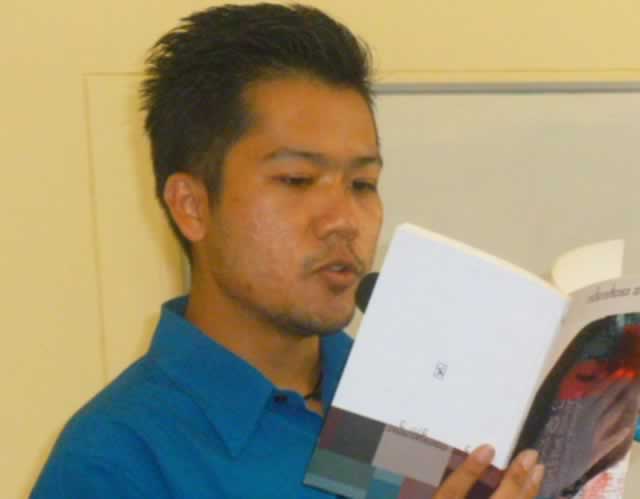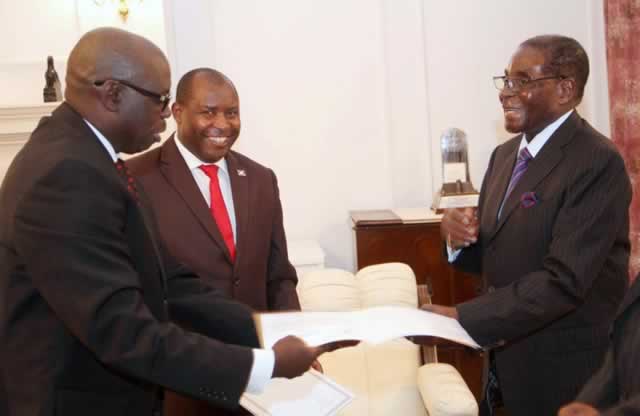A taste of Burmese poetry

Beaven Tapureta Bookshelf
Locally held international literature festivals provide refreshing, illuminating retreats for both debutants and connoisseurs of Zimbabwean literature.
We are cocksure there are now two major international literature festivals, namely the long-established ZIBF and the LitFest Harare which enters its third year this year.
Apart from being marketplaces for the writing industry and platforms for discussing pertinent issues affecting writers at home and in Africa at large, these festivals are loyal to their international aspect as they invite writers from other countries in and outside Africa who bring in new literary experiences. This inter-regional communication in matters to do with writing and publishing edifies the local literary sector.
Last year in November, LitFest Harare invited writers Han Lynn and Elisabeth Beanca Halvorsen who are from Burma (also known as Myanmar) and Norway respectively.
Han Lynn was, at the time of his visit to Zimbabwe, the poet-in-residence of the Sylt Foundation in Johannesburg, South Africa.
Beanca took part in several panel discussions and her play “Guinea Fowl” premiered at LitFest official opening held at Theatre in the Park. She livened up the festival especially with her play and news about her latest “work in progress” dealing with the late great writer Doris Lessing.
It would be great to hear again from Beanca about this book which has a working title “Out in the Blue” and is set for publication this year.
Lynn is one such introverted poet who at LitFest walked about with his satchel sagging with fresh-smelling copies of his 2015 poetry anthology titled “Para” (Chant Chan Books). He read one poem in Burmese language and then its English translation from the anthology at a LitFest event held at the University of Zimbabwe and was also engaged by local poet and hip-hop artist Biko Mutsaurwa in a one-on-one interview at the Gallery Delta.
Through his readings and interaction with fellow writers and poets, Lynn gave a taste of Burmese poetry although the festival’s poetry segment seemed to have been overwhelmed by panel discussions.
However, having Lynn around was certainly a cultural exchange experience that made us eager to know more about Burmese poetry.
Lynn had this maiden visit to Zimbabwe well thought out as he brought along his anthology “Para” and gave free copies to those with whom he established a friendship.
A former British colony, Burma is a Southeast Asian country now constitutionally known as Myanmar although lots of people still call it Burma. And Burmese is the mother language of the Barma people and other related sub-ethnic groups.
In terms of literature, one thing known about this country is the issue of heavy censorship instituted by its government.
Unlike in other countries where censorship is hardly a matter of concern (except maybe self-censorship), Burma is said to have been heavy on its artists, thus stifling principles of freedom of expression.
Lynn triggered more interest about Burma when he told this writer in a brief chat that, “Extreme censorship in Burma made writers use dense metaphor”.
These few words were enough to make one want to immediately read Burmese literature, Lynn’s poetry in particular, and gauge the extent of this “dense metaphor”.
Three translators, Nyein Nyein Pyae, ko ko thett and Kenneth Wong, translated “Para” from original Burmese language into English and two of the poems in the anthology were first published at the Poetry International web portal.
In some of Lynn’s poems there is a tendency to assemble contrasting images in a single line or stanza and before you know it, in the next line or stanza you meet another “abrupt” assemblage of images or philosophical statements.
The effect is a sense of “rhythm” and “chaos” and a reader can get lost in the maze of such poetry. Taking only the first stanza of the poem “This is How it Actually Is” as reference, one has to really think deeply to connect what the crow, the slipper, the vultures, could mean. Perhaps in Burmese culture these images are symbolic.
As soon as it came out of the operating room
And drank a can of Coca Cola,
The crow turned into a genuine peacock.
The slipper fits only the older stepsister.
The vultures are happy, each with its own iPad.
Lynn’s power in poetry is felt in the shorter poems that are surreal or philosophical or metaphorically symbolic. Here is one called “Helicopter”:
It didn’t know where to land
Until I signed an H
With the corpses
Of my comrades.
The narrative poems are beautiful in their brevity. They are pruned of all ornament and shine with a certain spontaneity. One of Lynn’s translators ko ko thett describes Lynn’s poetry as characterized by “no-frills narratives”, among other things. There is one poem called “Minor Husband” which captures an act of infidelity but it could mean more than infidelity.
The door bursts open with a BANG!
Lover is caught in shock
Cops and civilians
Enter the room
Lover is dazed
The ensuing dialogue between the two men, “the major husband and the minor husband” seems to probe the question posed in one of the lines: “Two husbands for one woman?” The poem ends with the arrest of the lover who keeps insisting:
No, no!
I … , I am not her minor husband
Other features of Lynn’s writing are subtlety, personification and animals in poetry. His poems are also free from any rhyme patterns but the rhythm is maintained in the excellent choice of words.
The translators did a great job because the original Burmese literary spirit is clearly felt in the anthology! Han Lynn is also a translator but he had to let other translators work on his poems possibly to avoid influencing his own work in some ways. His bio says he lives in the capital Yangon and often translates international poetry into Burmese.
He has to his name two other poetry anthologies titled “Hundred Cats” (2013) and “No Matter How Far Communication” (2014).
Apart from literary works, he has been working as a freelance guitar instructor since 2004 and his main interest is string instruments.









Comments